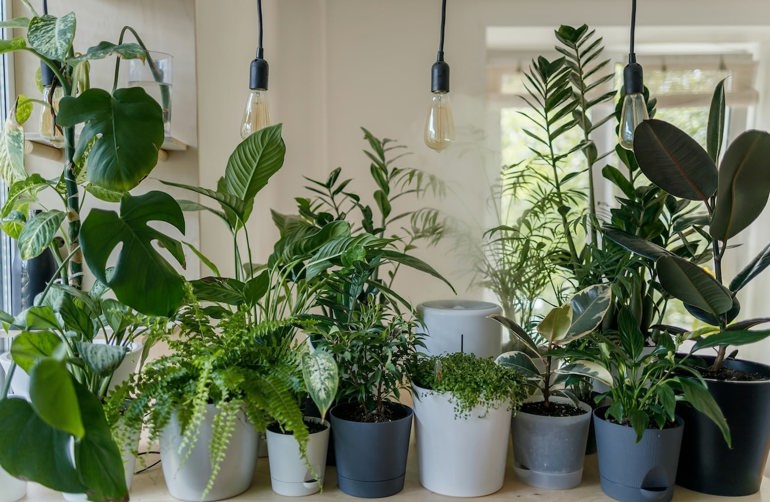


Growing sustainability awareness is making a positive impact in the world, but many still struggle with implementing sustainable practices at home. From our energy consumption to our water usage, our homes - and our role within them - leave a significant footprint. Whilst a single individual cannot make a significant impact on their own, collectively, our choices can lead to positive change. By changing things within our realm of control, we can look to reduce both our carbon footprint, as well as our use of resources.
At Altogether Group, we empower individual households to adopt sustainability at home in a way that's both impactful and achievable, from utilising recycled water and renewable energy to monitoring utility usage to prevent waste. We’ll be exploring simple measures that can be taken at home to live more sustainably, from conserving water and energy to using renewable utilities.

Energy production and water consumption are two of the largest issues the world is facing, both of which can be reduced by sustainable practices. As individuals, it can be difficult to justify making positive changes - particularly if they are more difficult to implement - and to downplay our role in the bigger picture, but collectively, we can make a difference.
Many energy providers still use traditional power sources like coal and gas, which emit harmful greenhouse gasses when burned, which negatively affect the environment. Although it is far more beneficial to choose a more sustainable provider, energy conservation practices and conscious choices for sustainability at home can drastically reduce your energy usage and environmental impact.
Use energy-efficient appliances with high Energy Star ratings
Switch to LED lighting
Unplug devices when not in use, or use smart power strips
Limit heating and cooling use with smart thermostats
Take advantage of natural light during the day
Seal windows and doors to reduce energy loss
Air-dry clothes instead of using a dryer
Another easy way to save energy is by making the most of natural light. Open blinds and curtains during the day to reduce your dependence on artificial lighting and heating. You can also insulate windows and doors to retain warmth during winter and cool air in summer, a solution that reduces heating and cooling demand.
Ensuring Australia’s long-term water security is a priority, however, there are several challenges that we are facing. With projections suggesting less rainfall in years to come and a growing reliance on desalinisation, we need to prevent excessive water use that can deplete local water reserves and strain treatment facilities.
Install low-flow shower heads and dual-flush toilets
Fix leaky faucets and pipes
Take shorter showers
Run dishwashers and washing machines only when full
Compost food scraps instead of using the garbage disposal
Water gardens early in the morning or after sunset to reduce evaporation
Install rain barrels to collect roof runoff for garden use
Use drought-resistant or native plants that require less watering
Sweep driveways instead of hosing them down
Using native and drought-resistant plants in your landscaping is another great way to save water, as these species require far less irrigation to thrive. Composting kitchen scraps instead of using a garbage disposal reduces water and energy use in the kitchen, while also enriching your soil.
At Altogether Group, we empower individuals and communities to take control of their power and water with our renewable sources. From utilising solar or wind power to using recycled water for your garden, small changes that won’t impact your standard of living can be implemented for big results. This reduces your reliance on fossil fuels and lowers your carbon footprint.
Renewable energy solutions (solar, wind)
Recycled water systems for household and garden use
Community-wide smart metering for better usage visibility
Support in reducing energy consumption and water waste
Real-time utility monitoring to help identify inefficiencies early
Our advocacy for sustainable practices and sustainability at home can not only help individuals to become more conscious of their actions, but it can also help to bring communities together. By making small changes at home, we can all contribute to a greener and brighter future for Australia for many years to come.
If you would like to learn more about how to live sustainably at home or how our utility services can benefit your community, get in touch with us today.
Some of the most effective ways to conserve water include installing low-flow fixtures, fixing leaks promptly, using dishwashers and washing machines only when full, and collecting rainwater for garden use.
Switch to LED lighting, unplug electronics when not in use, insulate your home, use smart thermostats, and opt for appliances with high energy efficiency ratings to improve energy conservation.
Practising sustainability at home helps reduce your environmental impact, lowers utility costs, and supports the preservation of natural resources for future generations.
Yes, modern dishwashers typically use less water and energy than hand washing, especially when run with full loads.
Yes, modern dishwashers typically use less water and energy than hand washing, especially when run with full loads.
Energy conservation benefits the environment by:
Reducing greenhouse gas emissions.
Decreasing reliance on fossil fuels.
Mitigating climate change impacts.
At Altogether, we deliver reliable, localised essential services to over 400 communities across Australia. From world-leading recycled water systems to efficient embedded energy networks in high-rise communities, and smart grids in small communities, we're determined to do the right thing by our customers, and by the planet. As a multi-utility service provider, it’s our mission to make the world a brighter place, and we do that by offering sustainable power, water and data services.
Learn how your community can live more sustainably. Share tips and "waste hacks".
Check us out here.
